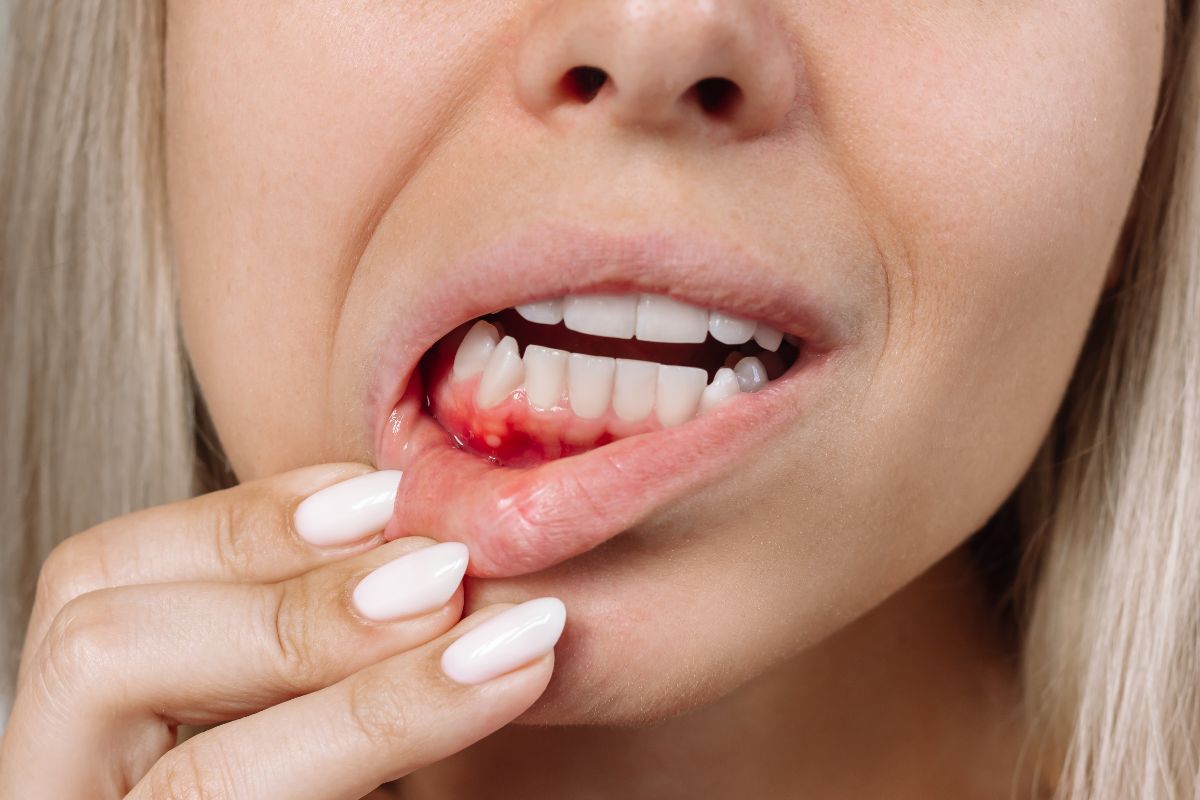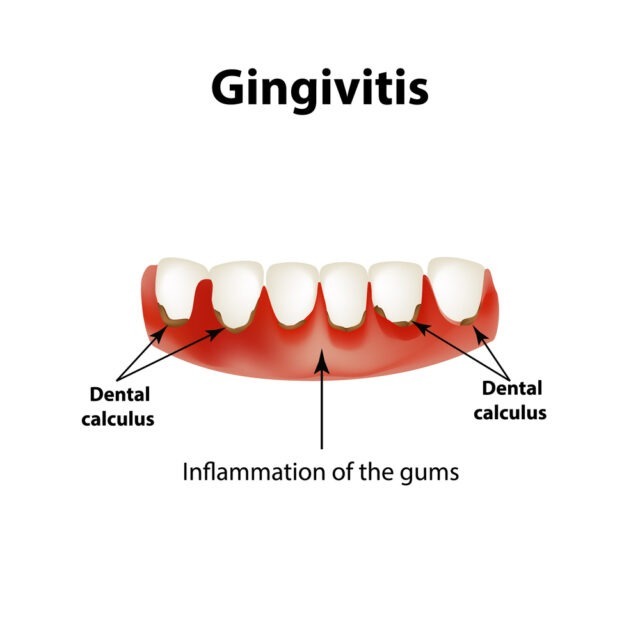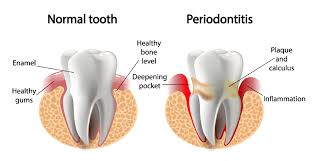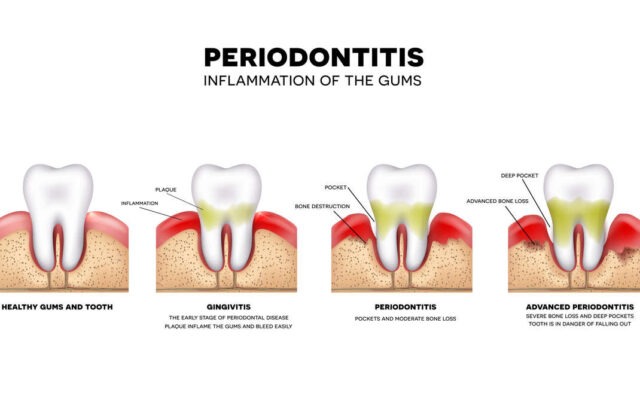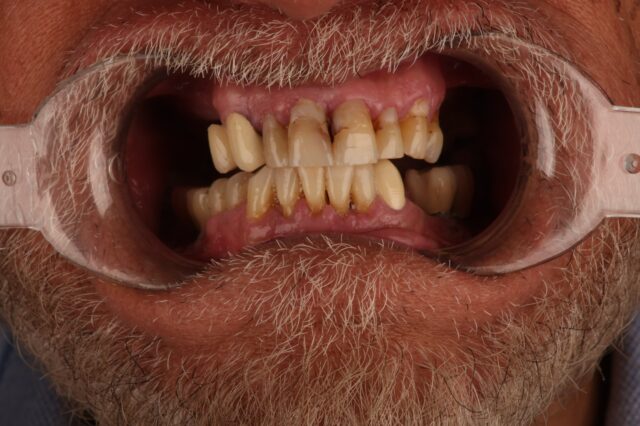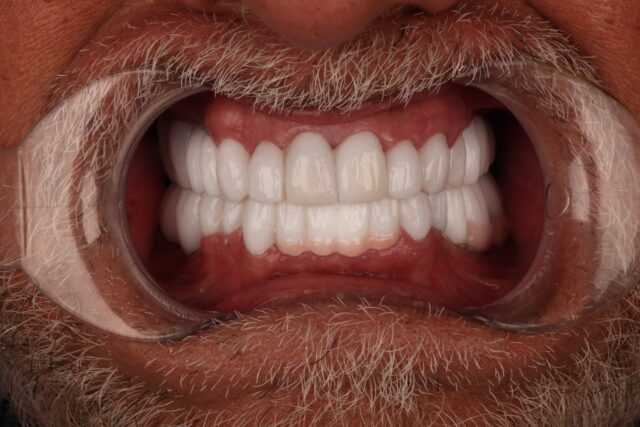Bleeding Gums: Why Are They Dangerous and What to Do.
Have you ever brushed your teeth and noticed your gums bleeding? It can be scary, right? But you shouldn’t panic! Let’s discuss why bleeding gums happen and what you can do about it before it turns into gum disease.
Bleeding gums can be a sign of underlying dental issues, and while they’re not always immediately dangerous, they can indicate problems that should be addressed. Common causes include gingivitis (early gum disease), improper brushing or flossing technique, hormonal changes (such as during pregnancy), or certain medications. If left untreated, gingivitis can progress to a more serious condition called periodontitis, which can lead to tooth loss and other health complications.
Why Bleeding Gums Are a Big Deal
You might think bleeding gums are not a big deal, but they can lead to some serious problems later on. Ignoring bleeding gums could lead to v, which are very bad for your teeth in the future. Receding gums means your gums start pulling away from your teeth.
This can make your teeth loose and even fall out! And you may need dental implants or dental bridges later on in life. Plus, if gum disease gets bad, it can even affect your heart and other parts of your body. So, yeah, bleeding gums are kind of a big deal!
What Causes Bleeding Gums?
Bleeding gums can happen for a few reasons.
- One of these big reasons is gum disease. Gum disease is when your gums get infected because of bacteria. When this happens, your gums can get red, swollen, and bleed easily.
- Another reason is brushing too hard or not flossing enough. This can irritate your gums and make them bleed.
- Sometimes, hormonal changes or certain medicines can also make your gums bleed
Gingivitis:
Gingivitis is always known as the first stage of gum disease, which is marked by inflammation or swelling and redness of the gums. It is often caused when a person does not have good oral hygiene and plaque builds up along the gum line of this person.
Symptoms:
Some symptoms may include red, swollen gums that bleed easily, especially when brushing or flossing.
Gingivitis is generally reversible if you brush and floss your teeth properly, and also if you go for dental cleanings. But if it is left untreated, it can progress to an even more severe gum disease called Periodontitis which can lead to teeth loss and other complications.
Periodontitis:
Periodontitis is an advanced stage of gum disease that comes up after gingivitis has been ignored or left untreated. In Periodontitis, the infection and inflammation do not end at the gums, but spread beyond the gums and affect the bone and tissues that support the teeth.
This causes the gum to separate from the teeth and creates holes or pockets where bacteria can grow.
Symptoms:
Symptoms of periodontitis usually include but are not limited to bad breath, receding gums, loose teeth, and changes in how you bite.
If Periodontitis is not treated on time, it can lead to teeth loss and it can even affect your overall health, increasing your risk of diseases such as heart disease and diabetes.
Treatment: Treatment usually includes regular thorough cleaning procedures, antibiotics, and sometimes surgery to restore the health of the gum and the bone. However, it is essential to undergo regular dental checkups and maintain good oral hygiene to prevent and treat periodontitis.
What You Can Do About Bleeding Gums
How To Keep Your Gums Healthy
Now that you know why bleeding gums are dangerous and how they can affect your health, let’s discuss what you can do to keep them healthy.
There are ways to keep your gums happy and healthy. Let’s start with prevention
- First off, make sure you’re brushing and flossing every day. But don’t go crazy! Brush your teeth gently, and make sure you get all around your gums. If you’re not sure if you’re doing it right, ask your dentist to show you. You can also visit our guide on how to floss teeth properly.
- Also, try to eat healthy foods like fruits and veggies. They can help keep your gums strong and healthy. And also, you can check out our guide on how to properly floss your teeth
If your gums keep bleeding, don’t ignore it! Go see your dentist. They can help figure out what’s going on and give you tips to keep your gums healthy. Sometimes, they might even recommend a special mouthwash or treatment to help your gums heal.
Home Remedies for Bleeding Gums
Okay, so what if your gums are already bleeding? Here are some home remedies to soothe them:
- Saltwater rinse: Mix a teaspoon of salt in warm water and swish it around your mouth. It can help reduce inflammation.
- Tea tree oil: Dilute a drop in water and apply it to your gums. It has antibacterial properties.
- Aloe vera gel: Dab some on your gums for its soothing effect.
- Clove oil: It’s like nature’s numbing agent. Apply a drop to your gums for relief.
Remember, these are just temporary fixes. If your gums keep bleeding, don’t play tough. See your dentist ASAP.
Conclusion
Bleeding gums might seem scary, but they’re usually a sign that something’s not quite right in your mouth. But don’t worry! By taking good care of your teeth and gums, you can keep them healthy and strong. So, brush, floss, and don’t forget to see your dentist regularly! Your gums will thank you for it!
You can contact us in case you have any other worry or question and our team of experts are ready to help you with whatever you need.

